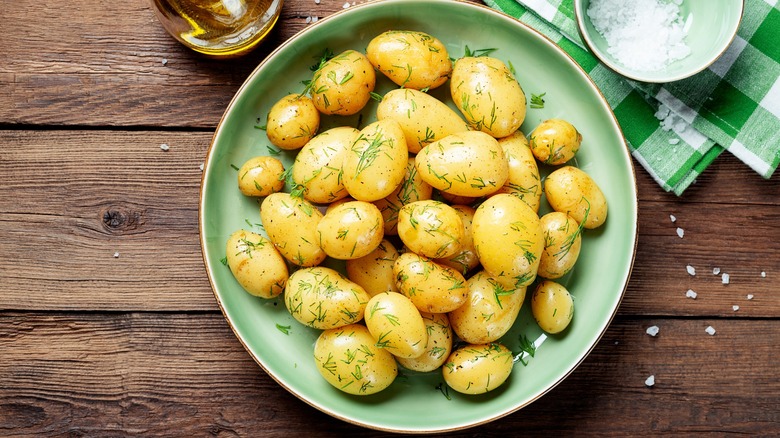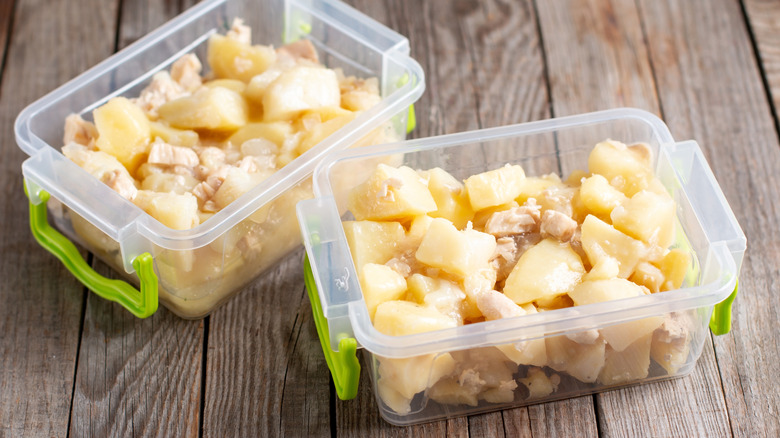How Long Boiled Potatoes Last In The Fridge And Freezer
Boiled potatoes are a quintessential side dish — simple yet oh-so delicious. They make the perfect complement to grilled steak, roasted chicken, or even a hearty salad, providing a comforting and satisfying addition to a variety of cuisines. However, there may be times when you find yourself with leftover boiled potatoes, or decide to prepare them in advance. In such cases, proper storage is crucial for preserving their quality, taste, and safety, while also minimizing waste. You can store them in the fridge or freezer, depending on how soon you plan to use them.
According to the U.S. Department of Agriculture, boiled potatoes stored in the refrigerator will stay fresh for up to three to four days. Make sure the fridge's temperature is set at or below 40 degrees Fahrenheit to maintain the potatoes' freshness for this duration. If you don't consume them within this timeframe, it's best to discard them to avoid the risk of food poisoning from spoiled potatoes. Freezing is another viable option if you plan to store the potatoes for an extended period. While potatoes frozen at 0 degrees Fahrenheit are safe to eat indefinitely, for optimal texture and flavor, it's advisable to consume them within three to four months, or at most, within 12 months.
How to store boiled potatoes properly
If you want your boiled potatoes to remain fresh and safe to eat, proper storage is essential. Start by cooling the boiled potatoes before placing them in the fridge or freezer. For refrigeration, simply put the cooled potatoes in airtight containers or resealable plastic bags. Expelling as much air as possible from the bags will help preserve their freshness.
For freezing, first drain the boiled potatoes and let them cool. Next, arrange them in a single layer on a baking sheet or tray and pop them in the freezer. Once they are frozen solid, transfer them to airtight containers or resealable plastic bags, removing as much air as possible, and store them in your freezer.
Regardless of your chosen storage method, it's important to maintain consistent temperatures to preserve the potatoes' texture, flavor, and safety. Labeling the containers or bags with the storage date is also a good practice, as it helps you keep track of their freshness. Finally, ensure that the immediate environment around the potatoes is clean to prevent the introduction of bacteria or mold, thereby promoting both the potatoes' longevity and their safety for consumption.

